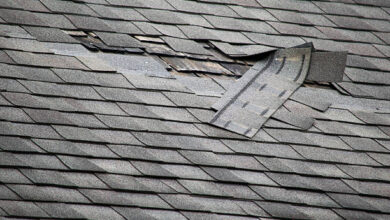Revolutionizing Home Comfort: Ultimate Guide to Mosquito Pest Control
Guide to Mosquito Pest Control
In the eternal battle against mosquitoes, homeowners are constantly seeking innovative and effective solutions to reclaim their living spaces. The prevalence of mosquito-borne diseases and the irritating bites they inflict have spurred the development of advanced mosquito pest control systems. This comprehensive guide explores the various types of systems available, their features, benefits, and how they contribute to creating a mosquito-free environment.
As we navigate a world where vector-borne diseases and climate change contribute to the increasing prevalence of mosquitoes, the importance of robust pest control systems cannot be overstated. These systems not only provide a shield against health risks but also empower individuals to reclaim their outdoor spaces for leisure and relaxation. With a myriad of options available, from high-tech misting systems to traditional mosquito nets, homeowners now have the flexibility to choose solutions that align with their preferences and lifestyle. Embracing these mosquito pest control innovations not only enhances the overall well-being of households but also represents a collective step toward creating healthier, more resilient communities in the face of mosquito-related challenges. As we look to the future, the evolution of these systems promises a world where the persistent hum of mosquitoes becomes a distant memory, replaced by the tranquil sounds of nature and the joy of outdoor living.
Understanding the Mosquito Threat:
Mosquitoes are more than just annoying pests; they pose significant health risks by transmitting diseases such as malaria, dengue fever, Zika virus, and West Nile virus. Beyond health concerns, their relentless buzzing and itchy bites can disrupt sleep and outdoor activities. As a result, investing in a reliable mosquito pest control system has become a priority for many households.
Types of Mosquito Pest Control Systems:
Mosquito Repellent Devices: Portable devices that emit mosquito-repelling substances, often using ultrasonic or electromagnetic technology. Ideal for small indoor spaces and outdoor activities like camping or picnics.
Mosquito Traps: Designed to attract and capture mosquitoes using various organic treatment such as UV light, heat, or CO2. Effective for both indoor and outdoor use, providing a continuous trapping solution.
Insecticide Spraying Systems: Automated systems that release insecticides at specified intervals to control mosquito populations. Suitable for outdoor spaces like gardens, yards, and agricultural areas.
Mosquito Nets and Screens: Physical barriers that prevent mosquitoes from entering living spaces.
Ideal for windows, doors, and even bed canopies to create a mosquito-free zone.
Mosquito Misting Systems: Utilize a network of pipes and nozzles to disperse insecticides in specific areas.
Commonly installed around homes, gardens, and commercial spaces for continuous mosquito control.
Benefits of Mosquito Pest Control Systems:
Health Protection: Reducing the risk of mosquito-borne diseases, safeguarding the well-being of household members.
Improved Quality of Life: Creating a comfortable living environment by minimizing mosquito-related disturbances.
Environmental Considerations: Many modern systems use eco-friendly and low-toxicity solutions, minimizing the impact on the environment.
Convenience and Automation: Automated systems require minimal effort, offering convenience and peace of mind.
Cost-Effective Solutions: Investing in a reliable mosquito control system can be more cost-effective in the long run compared to frequent purchases of repellents or insecticides.
Versatility: A wide range of systems cater to different preferences and needs, allowing homeowners to choose the most suitable option for their living spaces.
Installation and Maintenance Tips:
Professional Installation: Depending on the complexity of the system, hiring professionals for installation ensures optimal performance.
Regular Maintenance: Routine checks and maintenance, including cleaning traps, refilling repellents, or replacing parts, are essential for sustained effectiveness.
Follow Manufacturer Guidelines: Adhering to the manufacturer’s instructions guarantees the system operates efficiently and safely.
Integration with Existing Infrastructure: Some systems can be integrated with existing home automation setups, providing additional convenience.
Conclusion:
In the pursuit of a mosquito-free living space, investing in a reliable pest control system is a proactive and effective approach. Understanding the different types of systems available, their benefits, and proper installation and maintenance practices can contribute to a healthier and more comfortable home environment. As technology continues to advance, the future holds even more promising innovations in the field of mosquito pest control, offering homeowners increasingly sophisticated solutions to tackle this age-old nuisance.


